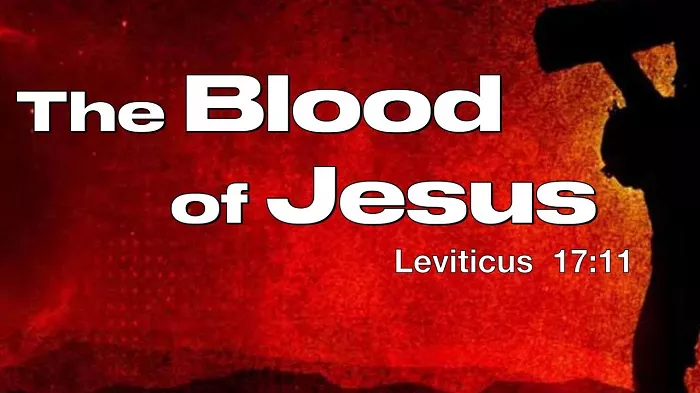Leviticus 17:11 is one of the most theologically significant verses in the Old Testament. It states, “For the life of the flesh is in the blood, and I have given it to you upon the altar to make atonement for your souls; for it is the blood that makes atonement by the life” (ESV). This verse encapsulates the importance of blood in the sacrificial system and the broader theological framework of the Bible.
The Context of Leviticus 17:11
Leviticus, the third book of the Bible, primarily deals with the laws and regulations given to the Israelites. Chapter 17 of Leviticus focuses on the proper handling of sacrifices and the prohibition against consuming blood. The chapter emphasizes the sacredness of blood, highlighting its role in atonement and life. The context of Leviticus 17:11 is essential for understanding its meaning and significance.
The Importance of Blood in the Old Testament
Blood is a central theme in the Old Testament. It represents life and is integral to the sacrificial system. The shedding of blood was necessary for the atonement of sins. This principle is established in Genesis 9:4, where God instructs Noah not to eat flesh with its lifeblood still in it. The idea that life is in the blood is a recurring motif throughout the Scriptures.
See Also: Why Did Water and Blood Come out of Jesus?
The Atonement Significance of Blood
Leviticus 17:11 explicitly states that blood is given on the altar to make atonement for the soul. Atonement involves the reconciliation of humanity with God. In the Old Testament, this was achieved through the sacrificial system. The shedding of blood symbolized the payment for sin and the purification of the sinner. This concept is further developed in the New Testament, where Jesus’ sacrifice on the cross fulfills and transcends the Old Testament sacrifices.
Blood and Covenant Relationship
The concept of blood in Leviticus 17:11 is also tied to the idea of covenant. Blood was used to ratify covenants in the ancient Near East. In the Mosaic covenant, blood sacrifices were central. This established a relationship between God and the Israelites, underscoring the seriousness of sin and the necessity of atonement.
The Prohibition of Consuming Blood
Leviticus 17:10-14 includes a prohibition against consuming blood. This prohibition is rooted in the sacredness of blood and its role in atonement. By forbidding the consumption of blood, the Israelites were reminded of its significance and the holiness of God’s commands. This prohibition is reiterated in the New Testament, particularly in Acts 15:20, where the early church leaders instructed Gentile believers to abstain from blood.
Typology and Foreshadowing in Leviticus 17:11
Leviticus 17:11 also functions as a typological foreshadowing of Christ’s sacrifice. The Old Testament sacrificial system, with its emphasis on blood, points forward to the ultimate sacrifice of Jesus. His blood, shed on the cross, fulfills the atonement requirements of the law and provides a once-for-all solution to the problem of sin. This typology is a critical aspect of biblical theology, linking the Old and New Testaments.
Theological Implications of Blood and Life
The connection between blood and life in Leviticus 17:11 has profound theological implications. It underscores the seriousness of sin and the cost of atonement. Sin leads to death, but the shedding of blood brings life and reconciliation. This principle is foundational to understanding the Christian gospel and the message of salvation through Jesus Christ.
Blood in the New Testament
The New Testament builds on the Old Testament concept of blood. Jesus’ sacrifice is described in terms of blood atonement. In Matthew 26:28, Jesus refers to His blood as “the blood of the covenant, which is poured out for many for the forgiveness of sins.” Hebrews 9:22 echoes Leviticus 17:11, stating that “without the shedding of blood, there is no forgiveness of sins.” The sacrificial death of Jesus is the ultimate fulfillment of the Old Testament sacrificial system.
The Eucharist and the Blood of Christ
The Christian practice of the Eucharist, or Communion, is deeply rooted in the theology of blood. During the Last Supper, Jesus instituted this sacrament, using wine to symbolize His blood. The Eucharist commemorates Jesus’ sacrifice and serves as a continual reminder of the atoning power of His blood. This practice reinforces the connection between blood, life, and atonement established in Leviticus 17:11.
Modern Christian Interpretations
Modern Christian interpretations of Leviticus 17:11 often focus on its foreshadowing of Christ’s atoning sacrifice. The verse is seen as a precursor to the New Testament understanding of salvation through Jesus’ blood. Additionally, some theological traditions emphasize the ongoing significance of blood in the life of the believer, particularly in the context of the Eucharist.
Ethical and Moral Considerations
Leviticus 17:11 also has ethical and moral implications. The prohibition against consuming blood reflects a respect for life and the sacredness of God’s creation. This principle can inform contemporary ethical discussions, particularly in areas related to bioethics and the sanctity of life. The theological understanding of blood and life can provide a foundation for ethical decision-making.
Conclusion
Leviticus 17:11 is a pivotal verse in the Bible, encapsulating the significance of blood in the sacrificial system and its role in atonement. The connection between blood and life underscores the seriousness of sin and the necessity of reconciliation with God. This principle is foundational to both the Old and New Testaments, culminating in the sacrificial death of Jesus Christ. Understanding Leviticus 17:11 enriches our comprehension of biblical theology and the message of salvation.


